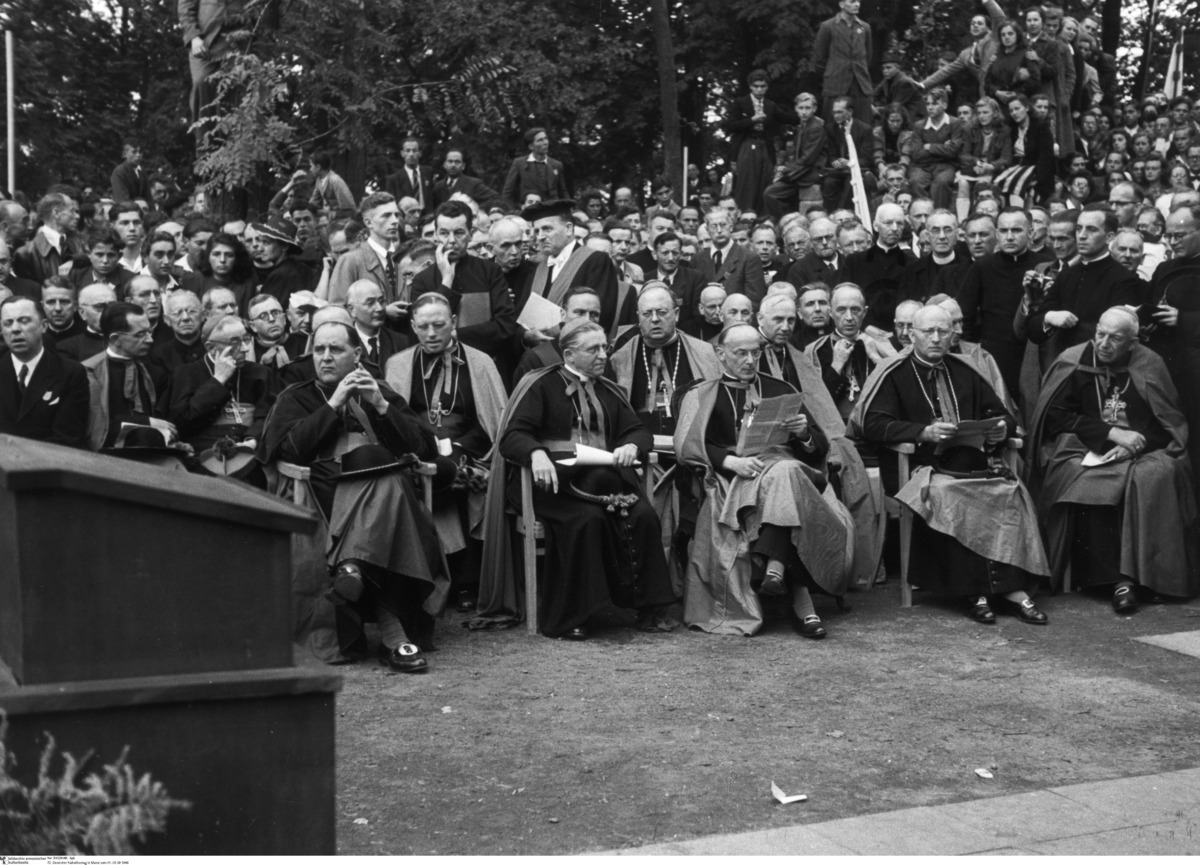Abstract
When choosing a location for the first German
Catholic Congress after 1932, postwar Church leaders deliberately selected
Mainz because it had been the site of the first German Catholic Congress in
1848 and because they wanted to hold the centennial in the same place. The
motto of the congress, “Being a Christian in a Time of Need,” was linked to
the demand: “Don’t Complain, Act!” The participants in the twelve working
groups discussed a variety of social issues at meetings closed to the
public: youth, Christian upbringing, family, women, broadcasting, film,
press, culture, the relationship between Catholics and Jews,
emergencies/crisis relief, responsibility for faith and the Church (i.e. the
relationship with modern science and technology) and other social topics,
especially refugees and workers. The clergy in the photograph are (first
row, from right to left): Wilhelm Berning (bishop of Osnabrück), Lorenz
Jäger (archbishop of Paderborn), Cardinal Josef Frings (archbishop of
Cologne), Aloisius Muench (papal nuntius), Albert Stohr (bishop of
Mainz).
